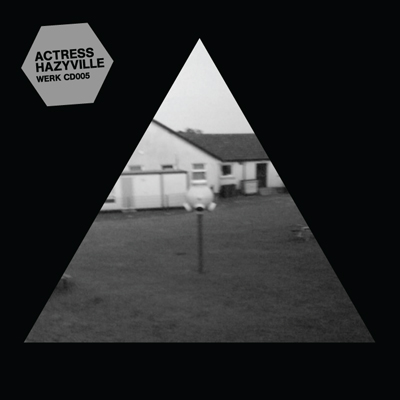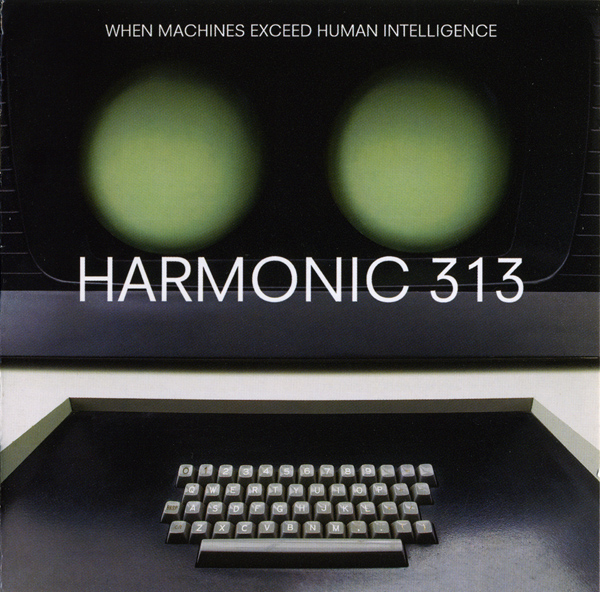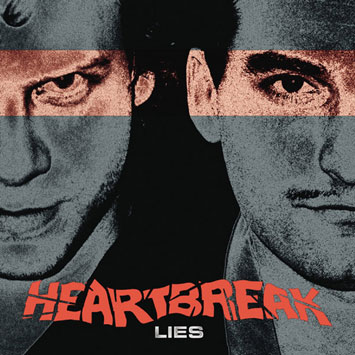The Mercury Music Prize 2009
 Toby Frith
Toby Frith  Sunday, July 19, 2009 at 03:45PM
Sunday, July 19, 2009 at 03:45PM I remember when the Mercury Music Prize came out in 1992, at a time when Britain was on the cusp of a golden period for music that would last 4 or 5 years. It was a fertile time, full of rich possibilities and thankfully a number of musicians made epoch-making albums that helped to define it. But a quick scan of the nominees and winners for this prize since its inception, you wonder what golden period those on the board for this organisation had in mind, especially when M-People won in 1994. Sadly it would be that one was still dominated by guitars, all the more galling when you consider the postively nostalgic musical viewpoint that those feted would take. For me personally, the Mercury Music Prize does not give recognition to those who truly deserve it, especially in a world where record sales amount to nothing. It’s sad that essentially all those who have been winners are major label-based and often have the backing of serious PR to help them. Those on the outside don’t get a look in, and the spirit in which the prize was conceived has been lost, although one wonders what it was in the first place.
When one considers the way that the musical landscape has shifted so much in the last 20 years, it is all the more mystifying that this award hasn’t deigned to provide more scope for contributions from musicians from the “electronic” sphere. Given the dramatic change in lifestyles for the young that acid house precipitated, a quick view of the list of artists shows only 2 winners and around 4 nominations of any worth since 1992. Roni Size and Dizzie Rascal, plus the likes of 4Hero, Burial and Underworld are about the only worthy mentions, but nowhere do we see any contributions from the UK’s most important label, Warp Records for example, or any recgonition for the likes of Aphex Twin or Autechre, two fantastic examples of musicians who have shaped their own musical world with the sort of nonchalant abandon that we have come to expect from some of Britain’s finest exponents of the art. 2007’s winners The Klaxons embody the myopia involved in the selection process, especially when Jamie Lidell, who embodies the richness of talent in the underground electronic scene was overlooked.
The major factor in this is that dance music does not apply the same sort of importance to an album. Whilst it can prove to be a major stepping stone into the realm of higher record sales, most producers in this area are amateurs, making a living out of other means. It is a world of singles, DJ and live appearances, and the chance in many instances to produce different styles of music under different monikers and names. The poisoned chalice of the 5 album advance with a major label is the lessening of artistic freedom. It is perhaps inevitable that in order to produce what one wants, one must accept that financial reward is likely only for the very few and lucky, which is why it is perhaps all the more galling that the Mercury Prize seems to prefer artists on major labels.
When we come to this year’s prize though, it’s then all the more galling that instead of being able to fire off a veritable catalogue of albums as a sort of riposte that should be nominated, the truth is that it’s been somewhat of a feeble year in UK Dance music for albums. This statement should be offset by the fact that there has been a veritable explosion of singles and the like from all areas, but it’s difficult to pinpoint more than a handful of works that are pushing boundaries in the more traditional genres like house or techno. The UK’s real contribution to what I would call European Dance Music has been in the synthesis of techno with dubstep, with a number of producers following the footsteps of Burial, who was listed in 2008. There have been very interesting releases from artists such as Ramadanman, Zomby, Lukid, Untold, but arguably the most telling has been the collaboration between Burial and Kieran Hebden earlier this year, which could prove fruitful if an album arrives. Arguably the most hip record shop in Europe, Berlin’s Hard Wax has been pushing UK dubstep for several years now, with German producers such as T++ and Pole now incorporating this style into their sound.
Whilst we’ve yet to see a long player from it, without a doubt the most vital scene in the UK in 2009 is in Glasgow, home to a polyglot of labels and nights that have emerged with a curious hybrid of instrumental hiphop, dubstep, nascent forms of US Ghetto and Baltimore styles, House, Electro and Techno. It’s still very much in its infancy, and I would argue that it has yet to see a defining anthemic record released, but artists such as Rustie, Hudson and Mohawk, and labels such as Wireblock are producing music that is as unusual as it is exciting. More pertinently, it is also populated by a number of very young producers whose knowledge of these styles is impeccable. One of the London media’s great weaknesses is that it gives far too much attention to anything that is considered to be a scene at an early stage, meaning that very often anything of any worth in the capital is either destroyed by bandwagon jumping scenesters or media gibbons desparate to turn vital new music into the appropriate web impressions for their site. Glasgow however, can mature and evolve naturally like other cities like Detroit or Berlin have done in the past without undue attention.
I’m now going to feature 3 albums that I think warranted inclusion in this year’s selection.

Actress - Hazyville (Werkdiscs)
Werkdiscs label owner Darren Cunningham not only releases albums by some of the rawer and distinct dubstep artists such as Zomby and Lukid, he also finds time to release some of the more avant-garde house music around under his Actress moniker.
Debut LP Hazyville takes inspiration from the more dusty meanderings of Detroit and Chicago House producers such as Theo Parrish and Spencer Kincey, deviating from the sort of crisp approach preferred by the current crop of UK house musicians, reducing his beats and accompanying samples to a primal yet abstract groove. It’s initially difficult listening if you’re more used to the upfront mood shifts that the more middle of the road house provides, but then the greatest dance music is always initially confusing and somewhat imperceptible to the culturally myopic.
Cunningham’s skill is in sticking to a simplistic approach and decorating his soundscapes with a filmic lo-fi grain, as if the audio tape had been purposefully covered in glue and dust. There’s not a great deal of variation in mood across “Hazyville”, but that’s not the point of this album, because it showcases an idiosyncratic slant on house music paired with a particular noise aesthetic that makes for beguiling listening once you crack the code. Cunningham brings the dark, murky world of South London to House music, and decorates it with a unique production style that importantly stamps his identity on the genre.
 Harmonic 313 - When Machines Exceed Human Intelligence (Warp)
Harmonic 313 - When Machines Exceed Human Intelligence (Warp)
Mark Pritchard’s track record as a producer is exceptional. As Reload he helped to redefine the direction Techno moved in during the 90’s, and his partnership with Tom Middleton under production pseudonyms as Global Communications and The Jedi Knights was responsible for some of the finest releases in techno and breakbeat during that time. His latest guise goes in a somewhat different direction though, fusing instrumental hiphop that is reminiscent of Detroit US beats (313 is the Detroit telephone area code) with the sinewy electronics that has become his trademark over the years.
The album itself is a paean to nostalgia through his scattered use of 80’s 8-bit machinery throughout such as a speak ‘n’ spell that evolves into a dystopic vision for the future uttered either by the aforementioned technology he uses, or through the guest vocals of Detroit rappers such as Phat Kat or Elzhi. Much of this album concentrates on exploring the possibilities of two distinct genres (hip hop and what many call IDM), and whilst it could have done with a little more vocal narrative to define Pritchard’s ideas, he compensates for this with a full range of dynamics produced by a limited palette. After a period away, Pritchard has again redefined his status as one of the UK’s most eclectic and visionary producers. Whilst this album doesn’t truly hit the heights, it is marker for Pritchard’s much-warranted recognition for his contribution to UK electronic in the last 20 years. Heartbreak - Lies (Lex)
Heartbreak - Lies (Lex)
It’s important to note that UK dance music does have a light side. Although not totally British, frontman Sebastian Muravchix being Argentinian, songwriter Ali Renault is one of the central figures behind a movement that is rediscovering the delights of 80’s Italian disco. “Italodisco” never took off in the UK originally due to our relative lack of discotheques and a growing Anglo-American distaste for the genre, although it’s worth noting that SAW productions and the Pet Shop Boys were influenced heavily by producers such as Salvatore Cusato and Alex Novaga.
Heartbreak combine the more surreal elements of Italodisco with a crushing stadium rock aesthetic that is reminiscent of the more neanderthal elements of golden-era Black Sabbath. Unlike other synthpop duos, Muravchix positively revels in his showman status, and thankfully he has a voice to carry it. Their debut “Lies” isn’t truly consistent, but its peaks are Olympian, especially “We’re Back”, a classic synthpop track that has all the right catchy hooks, the remarkable vocal talents of Murachix and a storming chorus. There are elements of the album that veer a little close to well-aimed criticisms of pastiche, but to my mind it rises above this with a naive optimism that is often very rare in the UK. Hi-NRG combined with with the pummeling riffing of 70’s Heavy Metal is an unusual mix, and I’m always keen to disparage bands that take such a cut ‘n’ paste approach to music, but deep down below the hipster surface remains a great love and a desire to do something new.
Toby Frith

Reader Comments (1)
I was dismayed at the lack of electronicness of this year's nominations (no Just A Souvenir? After all the broadsheet love it got?). I googled to see if Warp Records had ever been considered for a Mercury, and I came across this post. It's excellent. You're bang on about Aphex Twin and Autechre. I would also add Death In Vegas to the list of decent nominations.
(Oh and it's Hudson Mohawke, not 'Hudson and Mohawk'. Tossers call him 'HudMo'.)